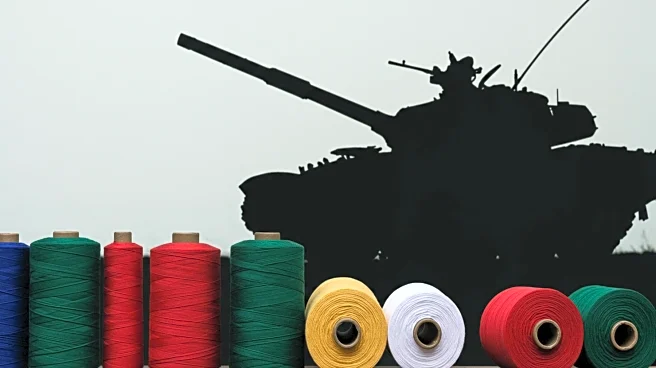What's Happening?
Myanmar's military government has announced elections set for December 28, following the lifting of a state of emergency. This announcement has raised questions within the global business community about potential changes in Myanmar's political and economic landscape. Despite international sanctions, Myanmar's garment industry is poised for growth, driven by low labor costs and strategic plans to increase industry value. However, the elections are viewed with skepticism by rights groups, who warn of deepening authoritarianism and international isolation.
Why It's Important?
The upcoming elections in Myanmar could have significant implications for the garment industry, which is a major economic sector in the country. International brands are closely monitoring the situation, as political stability could open opportunities for re-engagement and growth. However, ethical concerns remain, with many brands withdrawing due to the inability to ensure safe labor conditions. The elections could either provide a rare chance for political and economic reform or further entrench military rule, impacting Myanmar's international relations and economic prospects.
What's Next?
As Myanmar prepares for elections, industry stakeholders are watching for signs of political stability that could facilitate growth in the garment sector. However, the military's control and the lack of free and fair electoral processes may deter international investment. Brands may continue to face ethical dilemmas, balancing business interests with human rights concerns. The outcome of the elections will be crucial in determining Myanmar's future trajectory, both politically and economically, and will influence the decisions of international businesses regarding their operations in the country.
Beyond the Headlines
The elections in Myanmar highlight broader issues of governance and human rights. The military junta's actions, including the suspension of privacy laws, raise concerns about the erosion of civil liberties. The international community's response to these developments will be critical in shaping Myanmar's future. The garment industry's growth ambitions must be weighed against the ethical implications of operating in a politically unstable environment, where worker rights and safety cannot be guaranteed.










